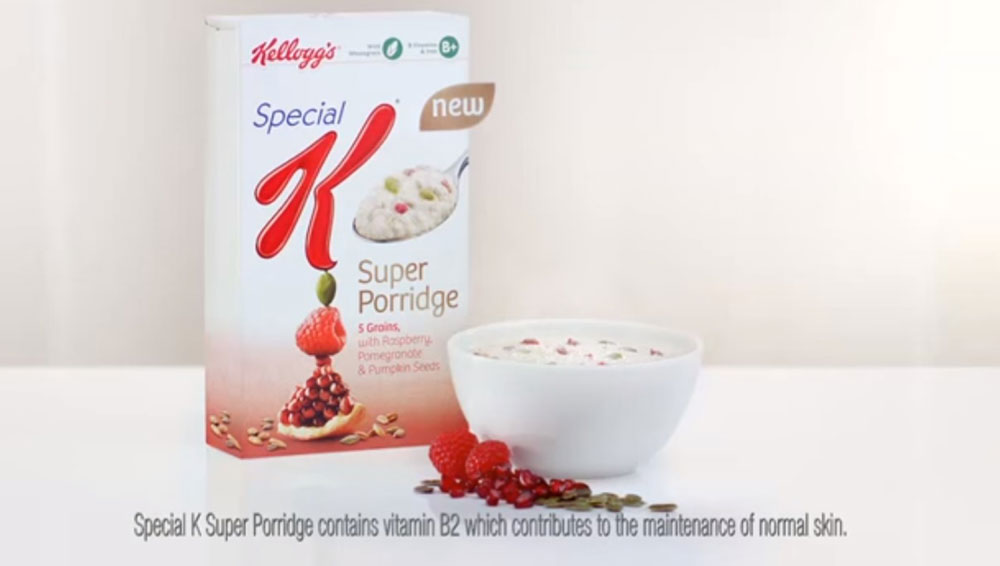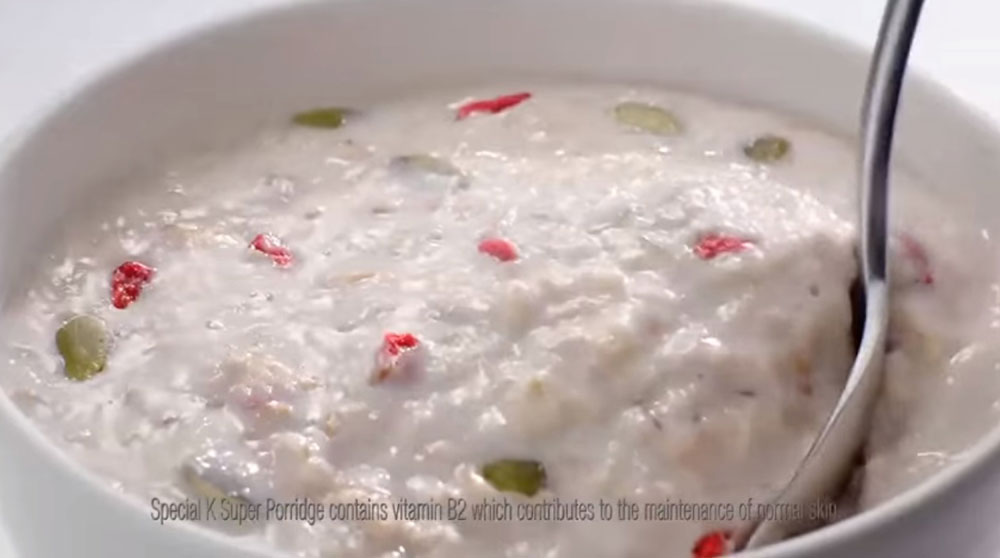KELLOGG’S has been rapped by advertising watchdogs after breaching nutrition and health codes on their adverts.
The popular cereal brand has been ordered to remove a TV porridge advert and an online NutriK grain claim following an investigation by the Advertising Standards Agency (ASA).
The watchdog ruled that the two ads, which appeared in October last year, breached the UK Code of Broadcast Advertising (BCAP).

And now the company, famous for their Corn Flakes, Frosties and Rice Krispies, has been ordered to scrap the adverts and ensure there is not a repeat of the mistake.
The ASA ruling, published online, begins by outlining the two adverts that received a complaint.
The first, a TV ad for Special K porridge, featured various scenes of ingredients while a voice-over stated: “Special K. Full of deliciousness. Full of colour. And now, with pomegranate, pumpkin seeds and raspberries. Our new five grain super porridge is full of goodness.”
On-screen text accompanied the commercial, which read: “Special K porridge contains vitamin B2 which contributes to the maintenance of normal skin.”
The second complaint referred to claims made online at www.specialk.co.ukwhich stated: “All Special K flakes are made with our unique NurtiK recipe making a nutritious and delicious start to your day.”

The complainant, who remains anonymous, challenged both adverts, believing they breached strict advertising codes.
Despite Kellogg’s response, which insisted that both the advert and the claim adhered to regulations, the ASA ruled that both complaints were upheld and were in breach of the code.
In explaining their decision for the TV advert, they write: “References to general benefits of a nutrient or food for overall good health or health-related well-being were acceptable only if accompanied by a specific authorised health claim.
“The specific authorised health claim was shown on screen but we noted it disappeared before the general health claim “full of goodness” was stated in the voice-over.
“The ad was therefore in breach of the code.”
With regards the second complaint about the online NutriK “nutritious” claim, they said that they had taken into consideration Kellogg’s view that the term “nutritious” was meant to highlight the nutritional credentials of the NutriK flake.
But they ruled: “The claim appeared on the home page ofwww.specialk.co.uk and we considered that in context consumers would understand that the claim was about Kellogg’s Special K cereal.
“However, without any further information…we considered they were likely to interpret it as one which implied that Kellogg’s Special K was “nutritious” because of its nutritional content and was therefore “good for you”.
“It should have been accompanied by a specific authorised health claim…we therefore concluded the presentation of the claim, as it appeared on the home page, breached the Code.”
They decided that the ads “must not appear again in their current form”, and they told the company to “ensure that relevant authorised health claims accompanied any general health claims that featured in their advertising.”
Apologise
Last year, Kellogg’s was ordered to pay over £3 million over a misleading campaign for Frosted Mini-Wheats.
In 2008 and 2009, the company claimed that the cereal could improve children’s attentiveness, memory and other cognitive functions – even though it didn’t actually have any of these positive effects.
A spokeswoman for Kellogg’s said: “We’re pleased the ASA acknowledged that Kellogg’s has authorised health claims for both the Special K Porridge advert and the Special K website.
“However, we apologise for the error in not ensuring this was made clear enough for our consumers. This has now been corrected.”
